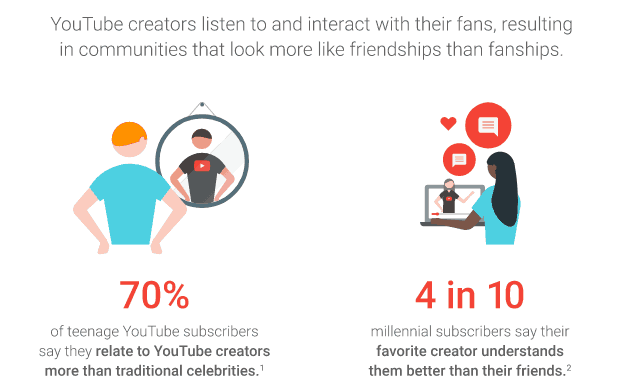Quick answer: yes. Long answer: Yes, unless you're following a bunch of hacking influencers, who keep encouraging you to Mr. Robot your way into the work's computer system, and change all the backgrounds to Rami Malek. Is this scenario suspiciously specific? I guess you'll never know.

92% of consumers say companies must be proactive about data protection, with 64% saying they would blame the company, and not the hacker. It's you vs a 2000s trench-coat-wearing, sports-glasses-sporting, computer hacker. And we all know how fast they can type.
Data privacy is becoming increasingly more important to consumers, and is now part of the complete customer experience. And this experience requires data.
It's all about maintaining customer trust, whilst providing a personalised experience that doesn't involve you bringing up their first pet, mother's maiden name, and the colour of the t-shirt they're currently wearing. Plus, with consumers spending more time online during the pandemic, increasing their shopping activity and online data presence.
The thing is, even though GDPR has been in effect for a few years, many businesses are still not in compliance. A real shocker, considering such non-compliance can cost a business up to €20M in fines, or 4% of your company's global annual turnover - whichever is higher.
So, gaining and keeping customer trust is vital. If your leads and customers don't trust you, you'll have a hard time getting them to opt-in to private policy or offers.
This is where influencers come in. These changes could fuel even more interest by companies in partnering with influencers, both due to a combination of building trust, and having access to one of the biggest troves of direct audience information out there. So, before we go any further, let's ask:
What Is Influencer Marketing?
Stripped back to basics, influencer marketing is a relationship between a brand and an influencer. Okay, article over.
What, you want more? Fine. So, the influencer promotes the brand's product through various social media platforms, depending on where they're based.
This is more than a celeb endorsement; an influencer is more of a direct contact with their audience, acting as a trusted figure within a niche community and loyal following. They tend to be a voice of authority within the space, giving their endorsement an element of, well, influence.
These influencers operated independently from brands, which helps if these companies become less trusted by consumers. The influencer is in control of the brand's message, choosing how they want to communicate it. This promotes a sense of authenticity.
So, if you can move away from collecting data through techniques like email lists. and instead focus on utilising influencers, your company can find and communicate with its audience without infringing on GDPR. Influencers have a direct line to their audience, without cookies or data points, and find many ways to connect on various platforms and devices, without infringing on privacy rights.
But how will brands know how their campaigns are doing? How will they know they're connecting with the right audience, and connecting successfully? Well, influencers have access to the first-party data from their own followers, data they can legally share in aggregated, anonymised form for a specific campaign, with a specific brand.
“They give real data, first-party real reach, first-party views, first-party audience data to the brands,” said Igor Vaks, founder and CEO of CreatorIQ, an influencer marketing platform used by hundreds of brands to manage their campaigns, including such marketing giants as Disney and Unilever.
“It means there are more real, true signals coming out of influencer marketing as a seed for the greater marketing ecosystem.”
This change has been gradual, but is now accelerating. In fact, we've recently seen a number of influencers authenticating their social media accounts, which has allowed brands to facilitate the data sharing for a given campaign and influencer.
“We’re in the greatest economic boom for influencers the world has ever seen,” said Evan Morgenstein, CEO of CelebExperts and talent manager.
“Whether they have 10,000 or 10 million followers, they’re making money from it. Influencers are hot because businesses have no idea how to talk to consumers anymore.”
So, the data these influencers are able to collect becomes highly valuable, and can help companies build a fuller picture of their customer, outside their campaigns. Plus, there's the ability to build long-term, deep connections with an audience, creating trust at depth.
It's important to ask, then: what are other ways you can build trust, in relation to social media marketing? Well, you can:
- Utilise valuable content. You've got to give back to your customers - you can't sell all the time. So, make sure you're providing valuable content to your users.
- Show real people. An easy way to inspire trust is to include your employees or customers in your social media - provide a face to the brand. Ann Handley agrees: she emphasises the importance of human connection. "You forget how important that human connection is. So, do your executives show their faces?" Anne says. This can be as simple as turning the camera around and showing who they are.
"I think especially in a post pandemic world, it's so key to building that trust." - Cultivate a good online reputation. Online reputation is important. Address concerns, and answer comments, in order to maintain a dialogue with your customers.
- Engage in social listening. This goes beyond monitoring your mentions. Social listening can give you a better understanding of sentiment about your brand.
Right, this sounds great, right? Well, using influencers doesn't always mean you'll escape the clutches of GDPR. You'll have to make sure your campaign is actually GDPR-friendly. So, you have to make sure your influencer programme is safeguarded, by
- Using social media to make the first connection. Social media can help you find, and engage, relevant individuals using topic-related hashtags that are not specific sensitive data. This means that the right influencer can give you immediate access to a group of valuable people. This can speed up a client's move through your sales funnel, and hopefully convert them. Although this sounds great, you still need to be careful. It's important that you have them click an 'opt-in' or 'subscribe' button, in order to receive further communication from you.
- Treating your influencers with respect. Ursula Ringham, Head of Global Influencer Marketing at SAP says that, to make sure your influencer marketing campaign complies with GDPR, “you need to treat your influencers with respect, and only collect the data you really need from them.”
Build Trust With Influencer Marketing
The rise of influencer marketing might be, in part, owed to the public's increased awareness of how businesses treat their data. People have come to realise that they are the product. So, there's a desire to move away from this.
People have become disillusioned with targeted advertisements, with a third of all internet users blocking online ads. So, traditional digital advertising is suffering from a lack of trust.
This is why native advertising is finding its niche. It provides a way to create campaigns which are both effective and non-intrusive. Influencer marketing plays into this trust in particular, as it has built this relationship from the ground up. Unlike creepy targeted ads, influencer messages keep that element of personalisation, whilst also speaking to the entire audience.
Plus, the user is making a choice to follow someone, and exposes themselves to the ad campaigns they participate in. So, if they lose interest, they can simply unfollow the influencer, and stop seeing the ads. A pretty easy and transparent 'opt-out'.
On top of this, influencer ads are always collaborative. So, the influencer has the power to plug products they trust, in ways that will be valuable to their audience. If they choose to advertise with a mistrusted brand, it damages their reputation too.
The Rise of Nano Influencers
Nano influencers are, currently, the best example of this form of trust marketing.
This is an account with between 100 to 10,000 followers, well below the next category of micro influencers. They tend to be considered what the influencer concept started as, before they got all that smoothie-bowl-skinny-tea-NordVPN money.
The top tiers of influencers have become so successful, that they've moved beyond what made them successful in the first place. That being authenticity. So, the other categories of influencers include:
- Micro: Less than 100k followers, smaller reach, lower investment.
- Macro: Over 100k followers, high reach, more expensive, but less authentic in their promotion of brands (do they actually use or engage with the products/brands that they are promoting?).
- Mega: Millions of followers (think Kardashians). Mega influencers are of celebrity status, and costs for their time plus engagement are generally extreme.
To an audience, a Nano influencer can feel like someone they know. Their accounts and blogs don't have masses of polished, produced content. Not an empty white house in California, or a private jet, in sight.
These individuals are not 'professionals' by any means. But, they have higher rates of genuine and personalised engagement with a niche and curated audience. And that's all we really want, right?
In fact, Singaporean social media start-up Partipost found that Nano-influencers offer engagement rates of 7-10%, compared to the 3.5% of micro influencers, and 2.67% of macro. This might be down to saturation - Nano influencers wont overload their followers with ad posts, so when one comes along, it seems authentic and genuine.
What is Affiliate Marketing?
So, maybe you want this kind of connection and trust, but influencer marketing isn't quite for you. Well, there's always the option of affiliate marketing.
Affiliate marketing allows brands to promote their product on websites other than their own.
So, your target audience will see your content on these sites, click them and buy something. The affiliate, i.e. the site involved, will then receive a small percentage of the sale.
Unlike influencer marketing, affiliate marketing requires you to build partnerships with other companies, blogs, and publishers. So, the goal is to grow revenue by offering special discounts and sales, and create awareness for these offers.
Basically, it's a performance-based marketing tactic, where your company will reward affiliates based directly on the results they provide.
- Cost-effectiveness and speed. So, this is the big one. Affiliate marketing is cost-effective. If you choose to use this form of marketing, you are paying only for the results.
- Data privacy. Audiences may feel more comfortable with these non-intrusive ads, where they feel as if they’ve stumbled into the product themselves.

